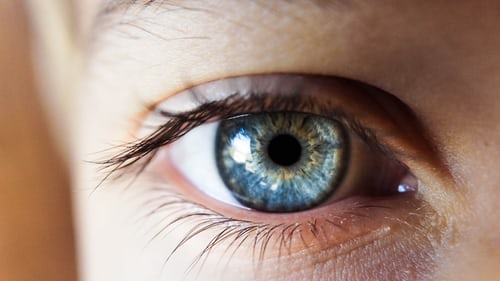


Eyes are the precious gift for a person from GOD. All the beauty in this world exists for one if that person can see it. Ignoring the basic things can place a bad impact on eyesight. But proper care, diet, and small eye exercises strengthen eye muscles and help to improve eyesight.
Each part of our body needs food, and so do our eyes. The essential diet for eyes includes food rich in vitamins, especially vitamin A, vitamin C, vitamin E, and other elements like zinc and copper.
These vitamins are abundant in seafood like fish, green vegetables, and carrots. Regular use of such a diet can boost your eyesight and help maintain eye muscles. Adding nuts like almonds and walnuts, which are rich in omega-3 fatty acids, can also improve overall eye health.
Every part of our body that has muscle can be exercised, and eyes are no exception. Several types of eye exercises exist that not only strengthen eye muscles but also help improve vision.
One simple exercise to sharpen your focus is to hold a pen at arm’s length and focus on it. Slowly move the pen closer until it’s about six inches from your nose.
Repeat this process in ten sets, three times a day. Another easy exercise is to sit in a dark room and blink your eyes rapidly for one minute. These exercises improve focus and help relax the eyes.
Exercise is not only good for your entire body and mind but also beneficial for your eyes. Physical workouts improve blood circulation, which strengthens muscles, including those of the eyes.
After your workout, try lying down with your feet toward the ceiling and your head on the floor. This position promotes blood flow to the brain and eyes, refreshing and energizing eye muscles.
Adding outdoor activities like walking or jogging in natural daylight can further reduce eye strain caused by excessive screen time.
Continuously working is not possible for human muscles, and the same is true for the eyes. Proper rest and short breaks are essential for eye muscles. Proper naps and adequate sleep are beneficial and necessary for the entire body, including the mind and eyes.
During sleep, the eye muscles get a chance to refresh themselves, becoming more active and focused.
Aim for at least 7-8 hours of quality sleep every night to maintain optimal eye health.
With the increasing use of digital devices, limiting screen time is crucial to protect your eyesight. Prolonged exposure to screens can cause digital eye strain, leading to headaches, blurred vision, and dry eyes.
Follow the 20-20-20 rule: every 20 minutes, take a 20-second break and look at something 20 feet away.
Adjusting screen brightness and using blue light filters can also help reduce strain on your eyes.
Exposure to ultraviolet (UV) rays can harm your eyes over time and increase the risk of cataracts and macular degeneration. Protect your eyes by wearing sunglasses that block 100% of UVA and UVB rays.
Choose wraparound styles for maximum protection, especially when outdoors during peak sunlight hours. A wide-brimmed hat can also provide additional shade for your eyes.
Research has shown that most people visit doctors only when they face health issues, and the same applies to eye specialists. However, this approach can lead to irreversible damage.
Regular eye check-ups can help detect potential problems early, preventing severe vision loss. It is recommended to visit an eye specialist at least once every six months.
Early diagnosis of conditions like glaucoma or macular degeneration can lead to better treatment outcomes.
Dehydration can lead to dry eyes, which may cause discomfort and vision issues. Drinking plenty of water keeps your body hydrated and ensures that your eyes produce enough tears to remain lubricated.
Aim for at least 8-10 glasses of water a day to keep your eyes healthy and comfortable, especially if you spend long hours in air-conditioned environments.
Eye allergies caused by dust, pollen, or other allergens can irritate your eyes, leading to redness, itching, and swelling.
Minimize exposure to allergens by keeping your surroundings clean, avoiding rubbing your eyes, and using protective eyewear in dusty environments. If allergies persist, consult an eye specialist for suitable treatments, like antihistamine eye drops.
In conclusion, taking care of your eyesight requires a combination of proper diet, regular exercises, adequate sleep, and protective measures. Incorporating these habits into your daily routine can significantly enhance your vision and overall eye health.
Always remember to consult an eye specialist regularly and seek professional advice if you notice any changes in your vision.